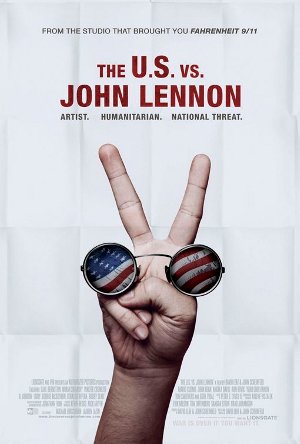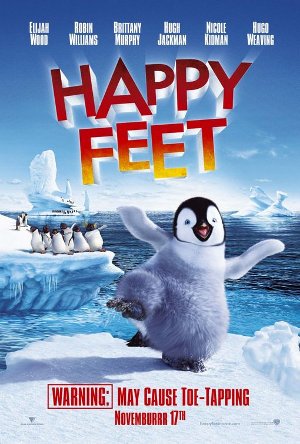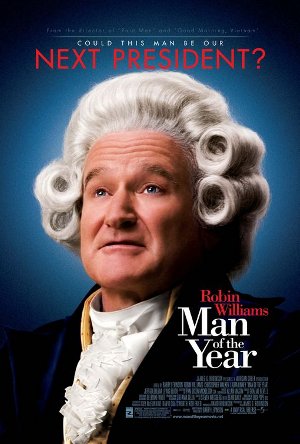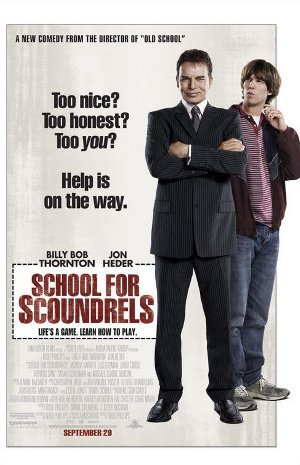- Title: The U.S. vs. John Lennon
- IMDb: link

 The year of the documentary continues. The U.S. vs. John Lennon takes its place along a great list of documentaries released this year that include An Inconvenient Truth (read that review here), Who Killed the Electric Car? (read that review here), Cocaine Cowboys (that review is coming, I promise), and Wordplay (read that review here). Aside from being informative and entertaining the documentary is quite timely; I urge everyone to watch closely at the speeches Richard Nixon gives about the Vietnam War and compare them, as the film does in a very small part, to our current administration’s conflict in Iraq.
The year of the documentary continues. The U.S. vs. John Lennon takes its place along a great list of documentaries released this year that include An Inconvenient Truth (read that review here), Who Killed the Electric Car? (read that review here), Cocaine Cowboys (that review is coming, I promise), and Wordplay (read that review here). Aside from being informative and entertaining the documentary is quite timely; I urge everyone to watch closely at the speeches Richard Nixon gives about the Vietnam War and compare them, as the film does in a very small part, to our current administration’s conflict in Iraq.
John Lennon was a God in the late 1960’s and 1970’s. He was also an intellectual, and in a way that would make Toby Keith go into fits of rage, a strong antiwar activist. The documentary begins with a summing up of the political and cultural landscape of the time. It discusses the Nixon White House, the Black Panthers, political activists Bobby Seale, Abbie Hoffman, Jerry Rubin and others.
From there the film jumps to Lennon’s height of popularity with The Beatles, his meeting with Yoko Ono, and how he evolved from the lead singer and spokesman of a British band into one of the world’s most outspoken anti-war activists.
The film follows Lennon’s attempts atpeaceful activism including his “Hair Peace, Bed Peace” sit-ins and his famous “Bed-Ins” in Amsterdam and Montreal, the recording of the album “Give Peace a Chance” which would become the international anthem for the peace movement, and the even more eccentric “Bagism” where Lennon and Ono were interviewed by reporters while completely covered under a bag.
Despite the couple’s list of eccentricities and oddities, Lennon was so popular and so out-spoken against the Vietnam War that Richard Nixon’s White House began a campaign to deport him. The documentary follows those years of Lennon fighting the system and trying to stay in his adopted home of New York City, as Senator Strom Thurmond and INS worked just as hard to kick Lennon out of the country.
The film is fascinating watching interviews with those who knew Lennon inter-mixed with clips and music from the time period. My sole complaint with the film is it’s a little slow getting started. The first half-hour or so tries to paint the picture of the period and events before it ever gets to Lennon specifically. While great for youngsters, many people will find this remedial history a tad boring.
However, once the film shifts focus to Lennon and his battles against the Nixon White House things get good, really good. Lennon and his legacy are in good hands here, and we are given some timely and balls-on perfect commentary by Gore Vidal about Nixon’s White House and the Bush White House today. I’m sure it will be enough to send Toby Keith into fits of rage, which is of course always a good thing.
John Lennon was an idealist, he was a little crazy, and he was right. We need people like him today. The documentary shows how this country needs people like Lennon to open their eyes to troubles we are all too willing to ignore. Unlike today’s celebrities who pick up and leave causes at the drop of a hat, without ever really understanding them, Lennon understood, and felt deeply personal over, the issues of his day and saw a need and responsibility to share those views with the word. He is missed, today more than ever.



 We’ve seen this done before, and done better. Man of the Year doesn’t come close to Levinson’s direction of David Mamet’s wickedly humorous satire
We’ve seen this done before, and done better. Man of the Year doesn’t come close to Levinson’s direction of David Mamet’s wickedly humorous satire 
 Roger (
Roger ( The year of the documentary continues. The U.S. vs. John Lennon takes its place along a great list of documentaries released this year that include
The year of the documentary continues. The U.S. vs. John Lennon takes its place along a great list of documentaries released this year that include